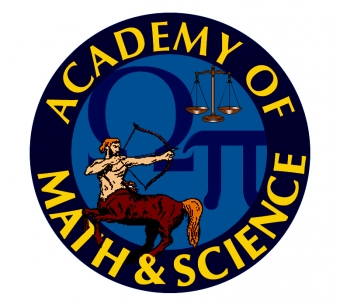- Education Topics
- Achievement Gap
- Alternative Education
- American Education Awards
- Assessment & Evaluation
- Education during COVID-19
- Education Economics
- Education Environment
- Education in the United States during COVID-19
- Education Issues
- Education Policy
- Education Psychology
- Education Scandals and Controversies
- Education Reform
- Education Theory
- Education Worldwide
- Educational Leadership
- Educational Philosophy
- Educational Research
- Educational Technology
- Federal Education Legislation
- Higher Education Worldwide
- Homeless Education
- Homeschooling in the United States
- Migrant Education
- Neglected/Deliquent Students
- Pedagogy
- Sociology of Education
- Special Needs
- National Directories
- After School Programs
- Alternative Schools
- The Arts
- At-Risk Students
- Camps
- Camp Services
- Colleges & Universities
- Counties
- Driving Schools
- Educational Businesses
- Financial Aid
- Higher Education
- International Programs
- Jewish Community Centers
- K-12 Schools
- Language Studies
- Libraries
- Organizations
- Preschools
- Professional Development
- Prom Services
- School Assemblies
- School Districts
- School Field Trips
- School Health
- School Supplies
- School Travel
- School Vendors
- Schools Worldwide
- Special Education
- Special Needs
- Study Abroad
- Teaching Abroad
- Volunteer Programs
- Youth Sports
- For Schools
- Academic Standards
- Assembly Programs
- Blue Ribbon Schools Program
- Educational Accreditation
- Educational Television Channels
- Education in the United States
- History of Education in the United States
- Reading Education in the U.S.
- School Grades
- School Meal Programs
- School Types
- School Uniforms
- Special Education in the United States
- Systems of Formal Education
- U.S. Education Legislation
- For Teachers
- Academic Dishonesty
- Childcare State Licensing Requirements
- Classroom Management
- Education Subjects
- Educational Practices
- Interdisciplinary Teaching
- Job and Interview Tips
- Lesson Plans | Grades
- Professional Development
- State Curriculum Standards
- Substitute Teaching
- Teacher Salary
- Teacher Training Programs
- Teaching Methods
- Training and Certification
- For Students
- Academic Competitions
- Admissions Testing
- At-Risk Students
- Career Planning
- College Admissions
- Drivers License
- Educational Programs
- Educational Television
- High School Dropouts
- Higher Education
- School Health
- Senior Proms
- Sex Education
- Standardized Testing
- Student Financial Aid
- Student Television Stations
- Summer Learning Loss
Academy of Math & Science

Basic Information
Address: 1557 W Prince Rd
County: Pima
District: Academies of Math & Science
Phone Number: (520) 293-2676
Fax Number: (520) 887-0616
Email: info@amstucson.org
Principal: Sandra Lomeland
Action Shots
* There are currently no photos associated with this listing.
Additional Information
School Type: Charter
Grade Level:
K-5, 6-8
Founded: 2000
School Setting:
Rigorous education for motivated students
School Size: 440
Classroom Size: 24
Classroom Teachers: 33
Student/Teacher Ratio: 13.3
After School Programs: Yes
Computer Capabilities:
Computer lab and mobile laptop cart
Parking Spaces/Availability:
Limited on site, parking available across the street
Mission Statement:
Our mission is to teach students the factual knowledge, habits of mind, and reasoning skills needed to solve problems, succeed in post-secondary education, and improve the world they live in.
Philosophy/Belief Statement:
Our vision is a greater articulation of the mission of the school. We will help students to:
Develop a thorough foundation in math, science (and its applied fields), and the humanities.
Analyze complex texts in a wide range of disciplines, genres, and modes.
Propose plausible solutions to problems in all disciplines.
Clearly organize and articulate their thoughts.
Have a sense of self that is grounded in real achievements and skills.
Be culturally literate, academically competent, and willing to serve the community in ways that develop the student’s personal strengths and interests.
Analyze and comprehend complex texts in a wide range of disciplines, genres, and modes.
Propose plausible solutions to problems in all disciplines.
Clearly organize and articulate their thoughts.
Develop a sense of self that is grounded in real achievements and skills.

